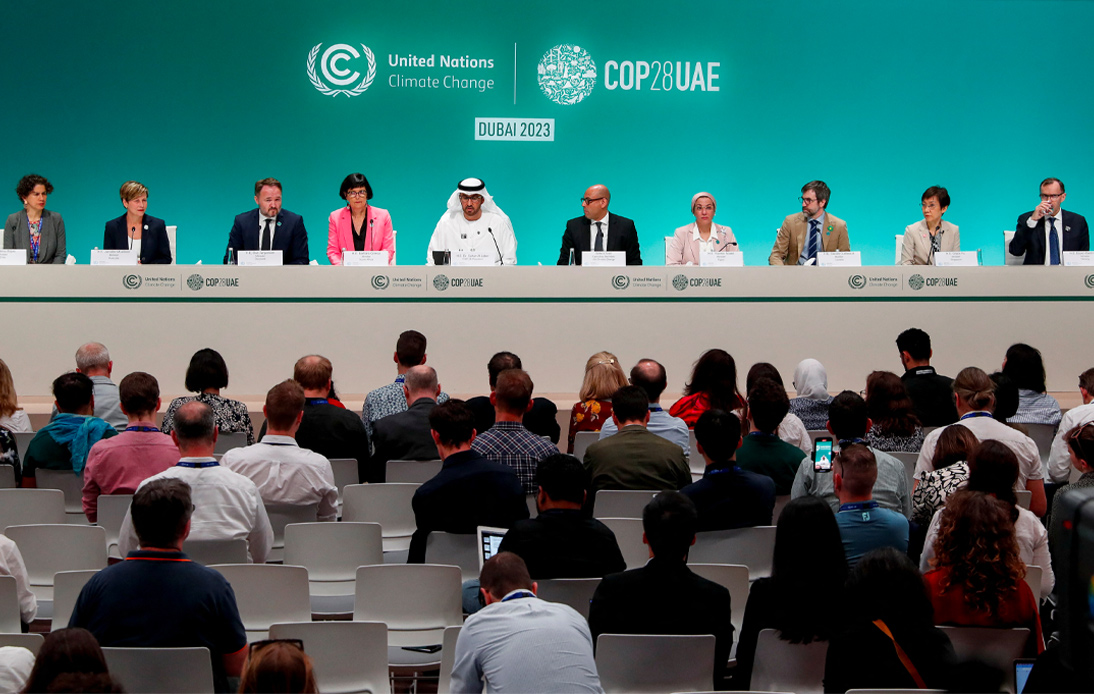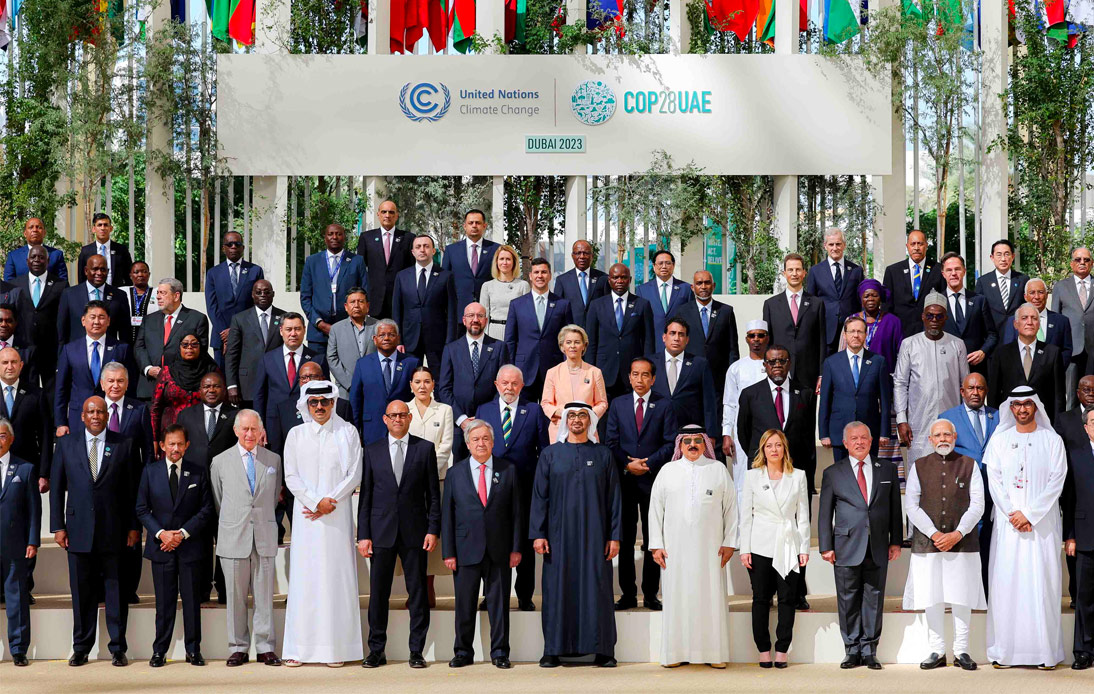
On Wednesday, representatives from nearly 200 nations at the COP28 climate summit agreed to begin reducing global fossil fuel consumption, marking a historic agreement. This signifies a potential end to the oil era to avoid severe climate change impacts.
This agreement, reached in Dubai after two weeks of intense negotiations, aims to send a strong message to investors and policymakers worldwide about a unified commitment to move away from fossil fuels.
This shift, as emphasized by scientists, is considered the best hope to prevent a climate catastrophe. Sultan Al Jaber, the President of COP28, hailed the agreement as ‘historic’ and emphasized the importance of its implementation for true success.
“We are what we do, not what we say,” he said, addressing a crowded plenary at the summit. “We must take the steps necessary to turn this agreement into tangible actions.”
The agreement was celebrated by various countries for achieving what was previously elusive in many years of climate discussions.
“It is the first time that the world unites around such a clear text on the need to transition away from fossil fuels,” stated Espen Barth Eide, Norway’s Minister of Foreign Affairs. ‘”t has been the elephant in the room. At last, we address it head-on.”
Over 100 countries strongly advocated for the COP28 agreement to include decisive language about phasing out oil, gas, and coal.
However, they faced opposition from OPEC, led by Saudi Arabia, which argued that emissions can be reduced without abandoning specific fuels.
This contention extended the summit by an extra day on Wednesday. OPEC members, controlling a major portion of the world’s oil reserves and a significant part of daily oil production, heavily depend on these revenues.
Small island nations vulnerable to climate change, supported by major oil and gas producers like the USA, Canada, Norway, the EU, and many others, were prominent advocates for the elimination of fossil fuels.
Danish Climate and Energy Minister Dan Jorgensen highlighted the remarkable nature of the agreement, reached in a region dominated by oil-producing countries, to move away from oil and gas.
The agreement specifically advocates for a shift from fossil fuels in energy systems in a just, orderly, and equitable way, aiming for net zero by 2050 as per scientific recommendations.
It also urges a threefold increase in renewable energy capacity globally by 2030, a faster reduction in coal usage, and the advancement of technologies like carbon capture and storage to clean up industries difficult to decarbonize.
With the deal finalized, it’s now up to individual countries to implement it through national policies and investments.
In the United States, the leading oil and gas producer and biggest historical greenhouse gas emitter, climate-focused administrations have faced challenges in enacting laws consistent with their climate commitments due to political division.
President Joe Biden secured a significant win last year with the Inflation Reduction Act, providing substantial subsidies for clean energy technologies like electric vehicles, wind, and solar.
Public support for renewable energy and electric vehicles has surged in recent years, from Brussels to Beijing, driven by advancements in technology, decreasing costs, and growing private investment. These factors have collectively fueled a swift expansion in their implementation.
Despite this progress, oil, gas, and coal continue to make up approximately 80% of global energy consumption. Predictions regarding the peak of global demand for these resources differ greatly.





















